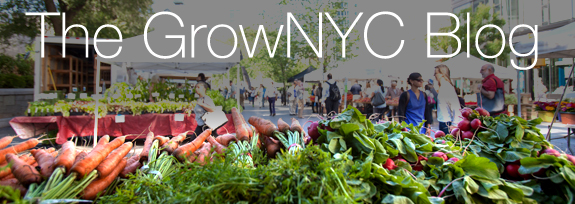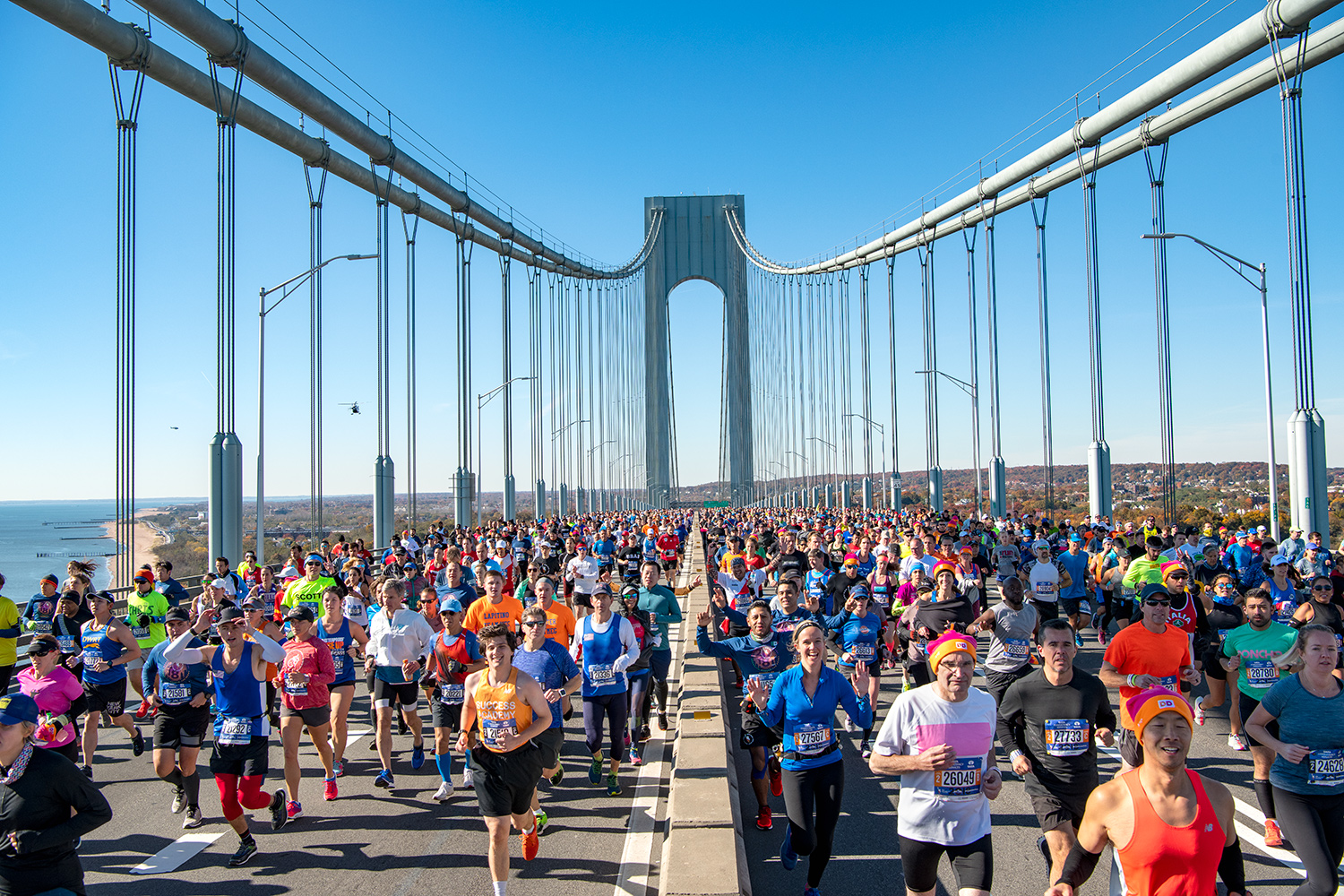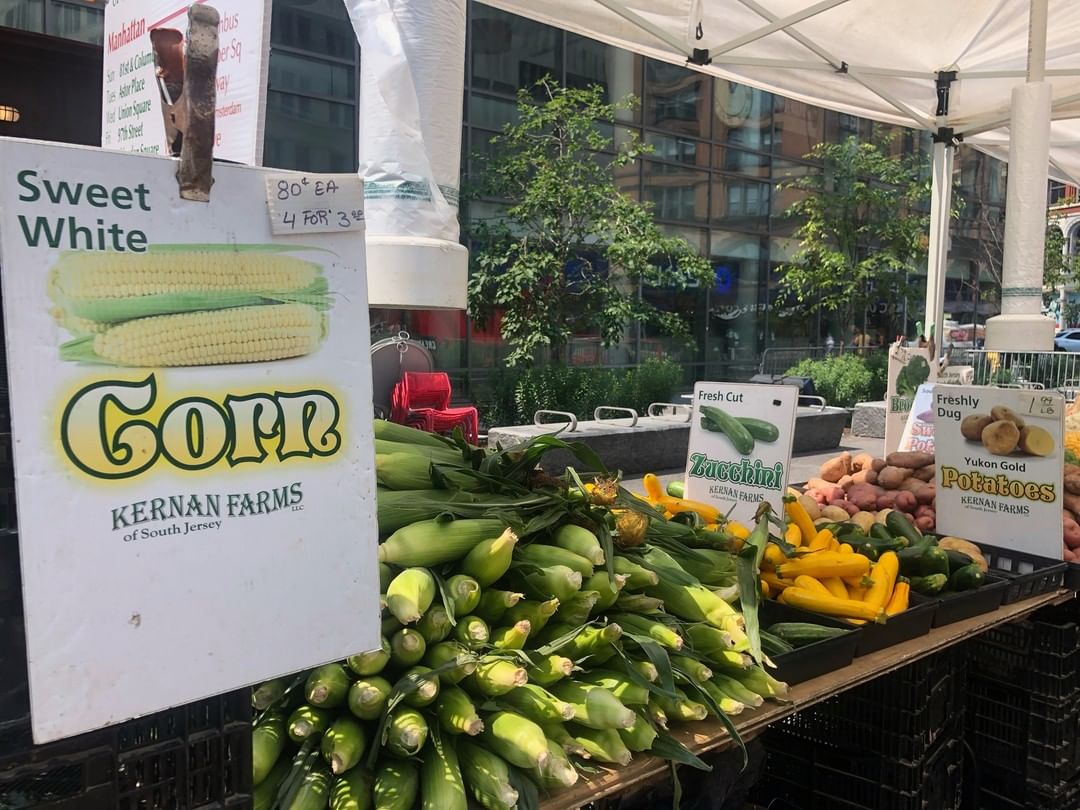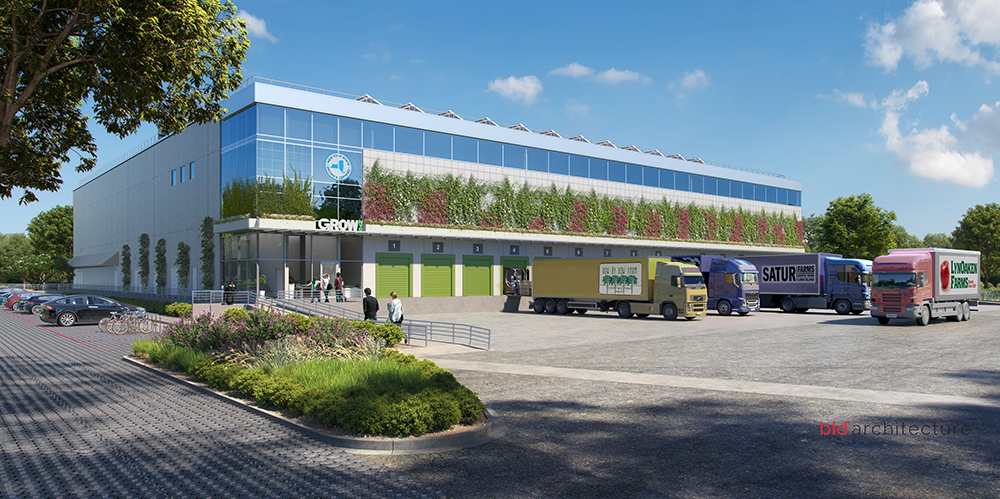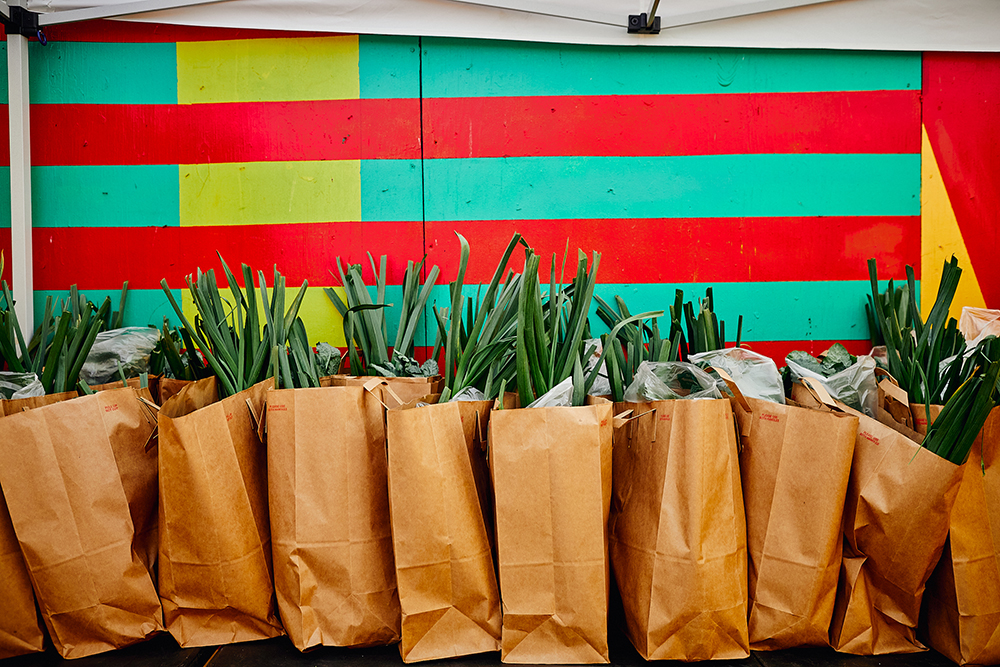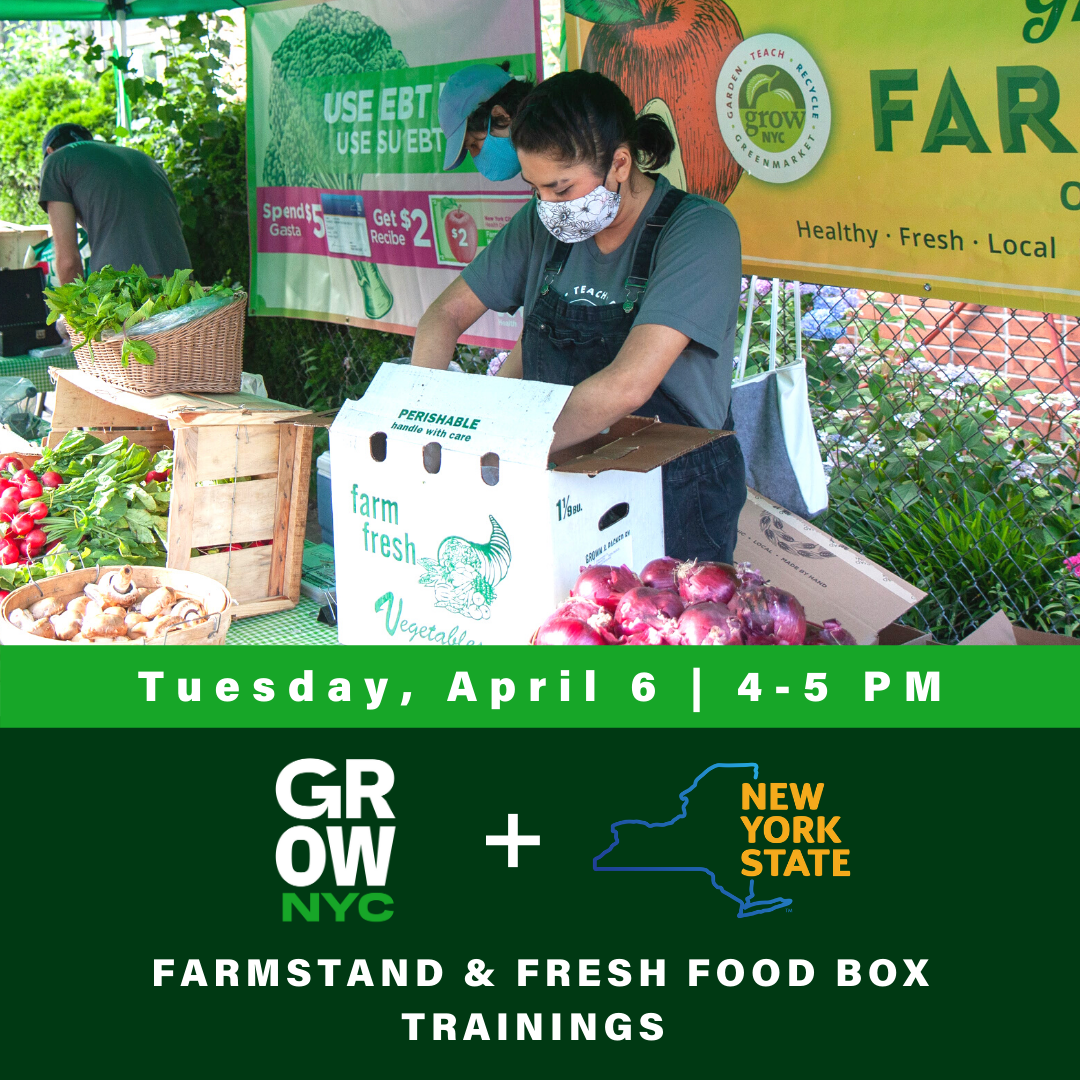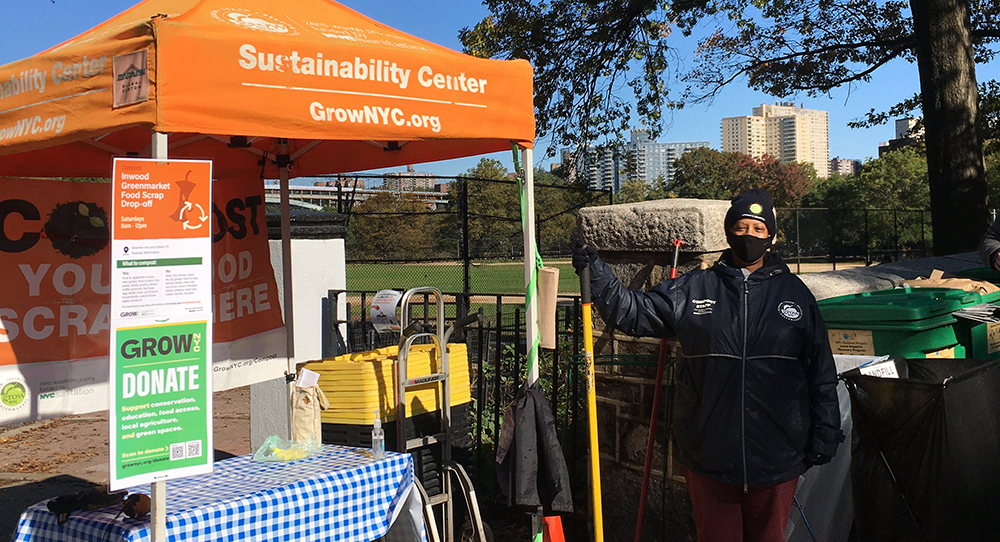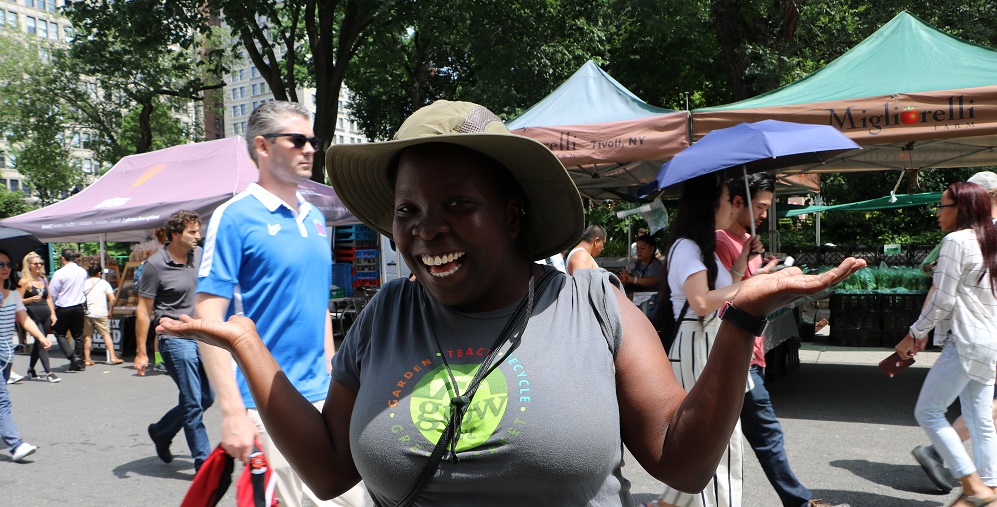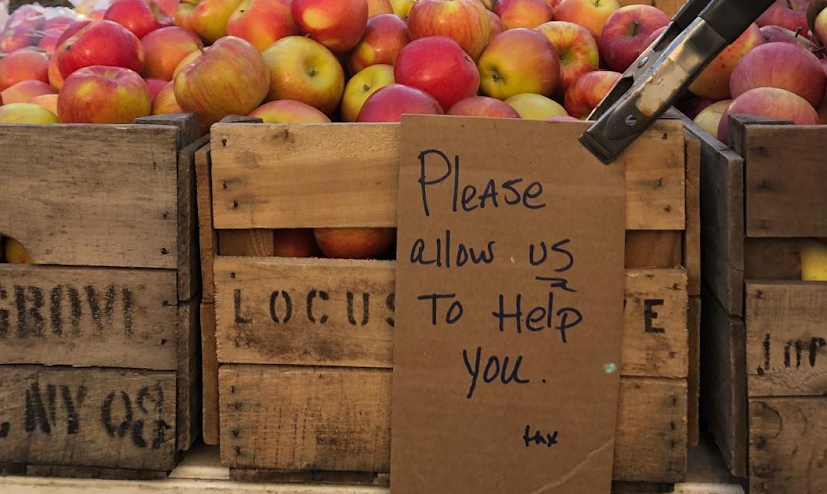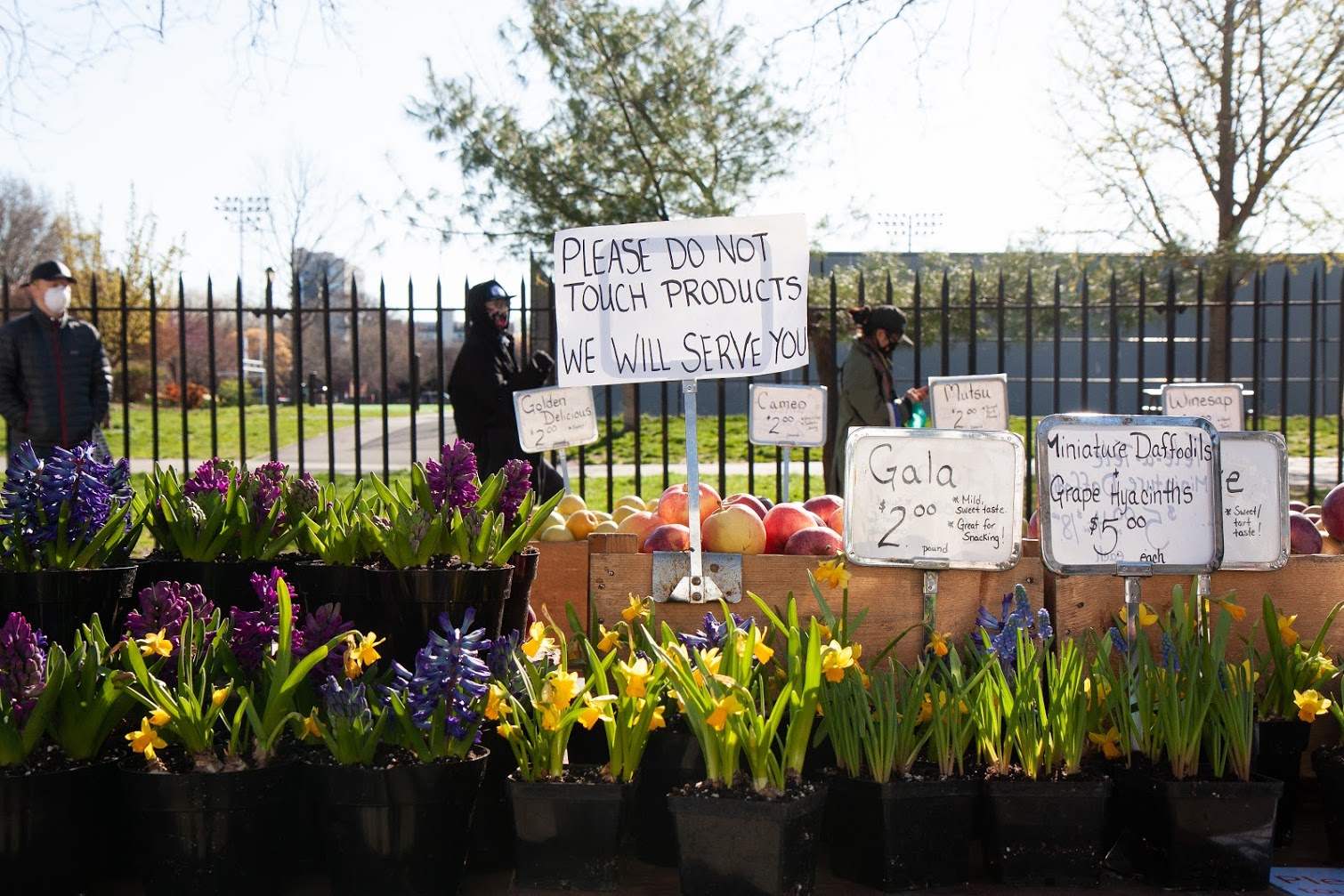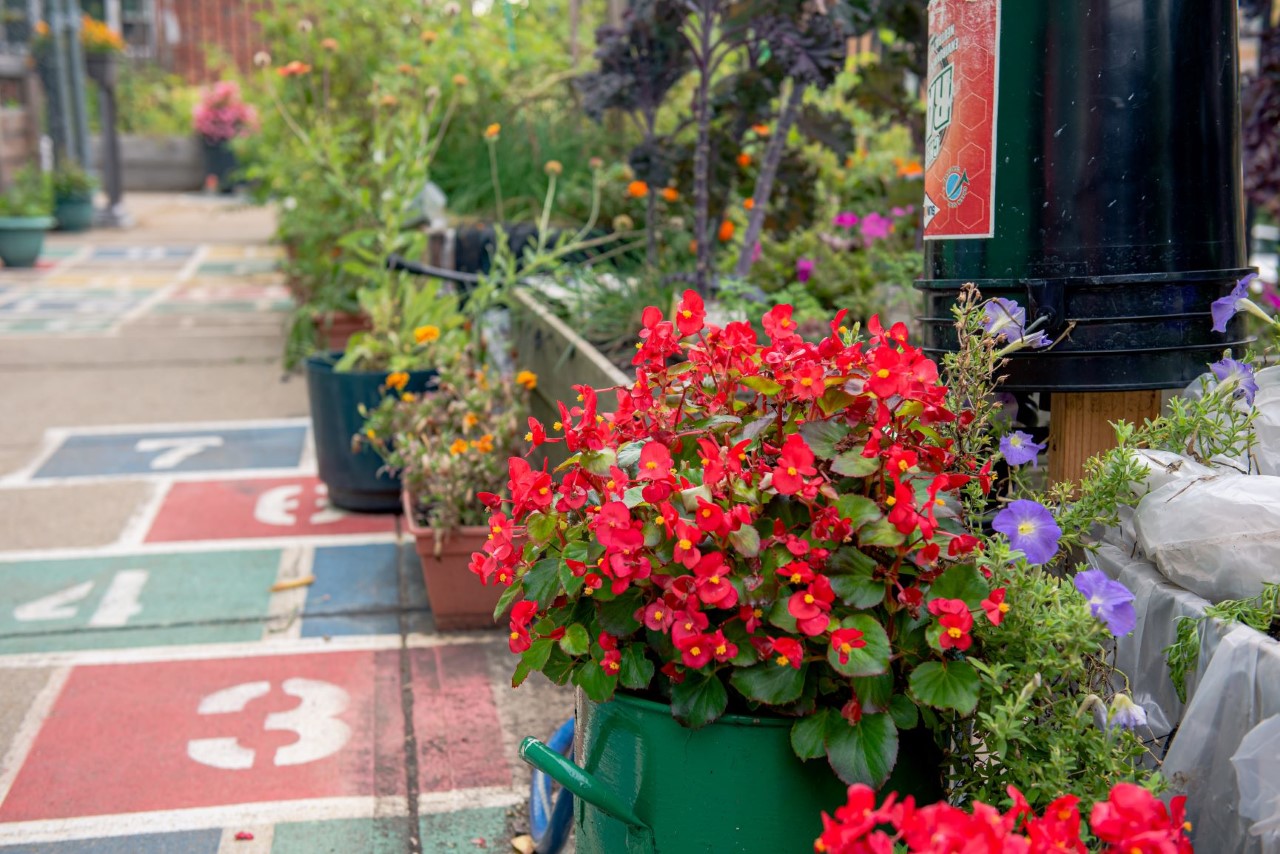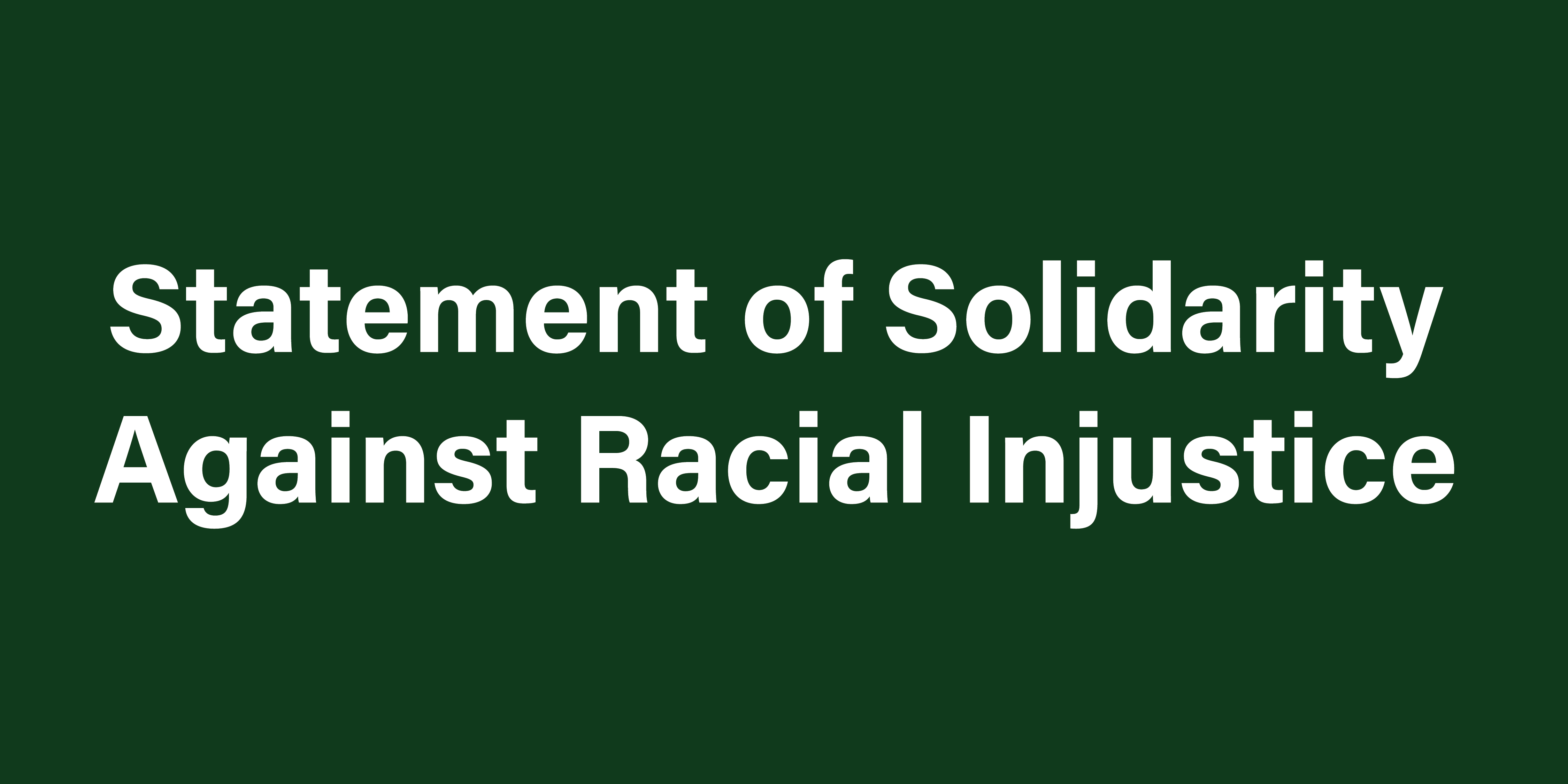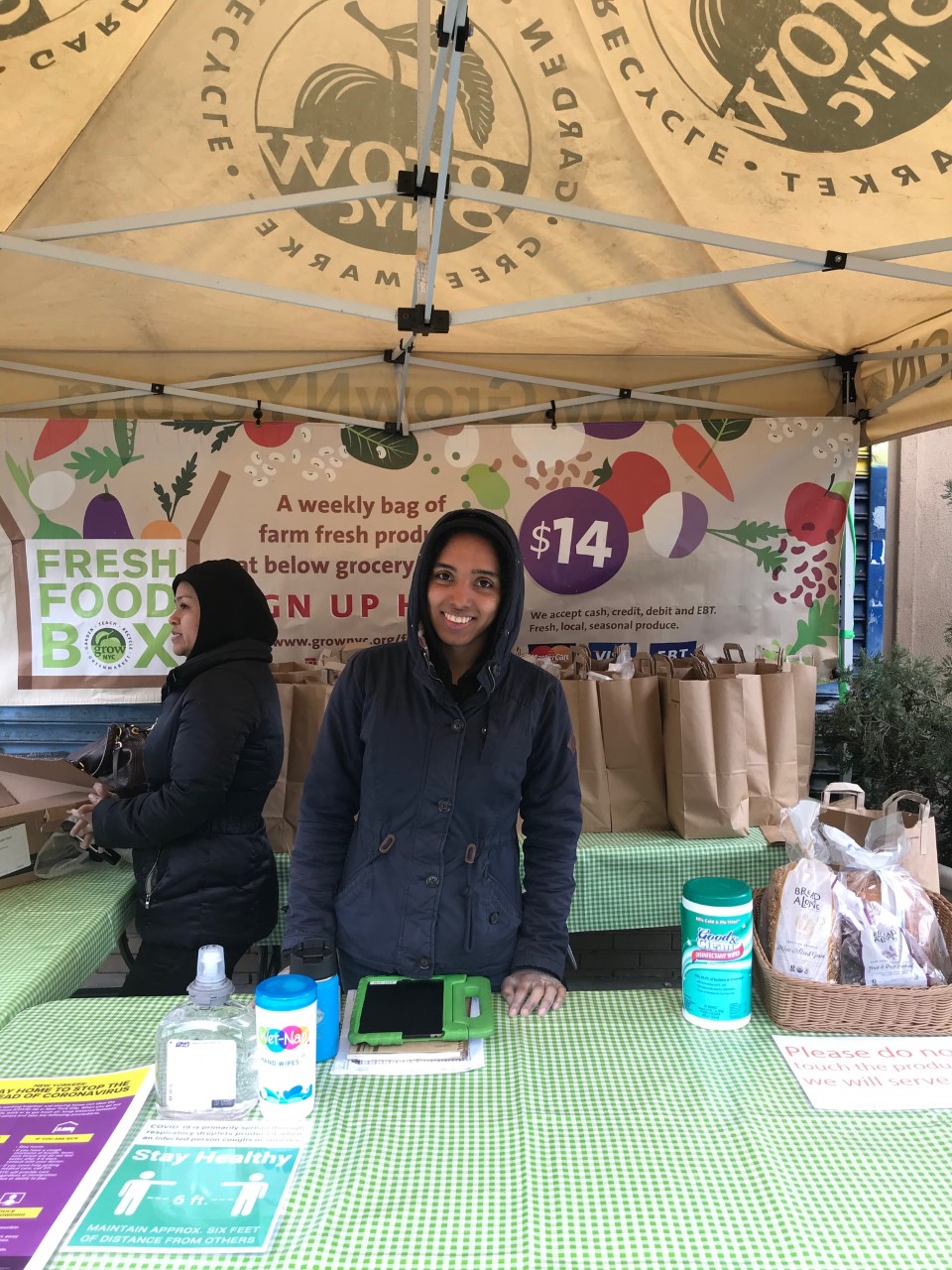GrowNYC Celebrates Black History Month
February 2021 marks the 45th annual Black History Month. To close our month-long observance of Black History, we happily feature some of the incredibly hardworking and talented staff that make up GrowNYC. Get to know:
- Tutu, Greenmarket Youth Engagement Coordinator
- Diante, GrowNYC's Executive Assistant
- Chantel, Garden Coordinator
- Akhmose, Fresh Food Box and Greenmarket Team Member
All share their thoughts and experiences as Black individuals navigating environmental and food access spaces, including challenges they have faced.
Tutu Badaru
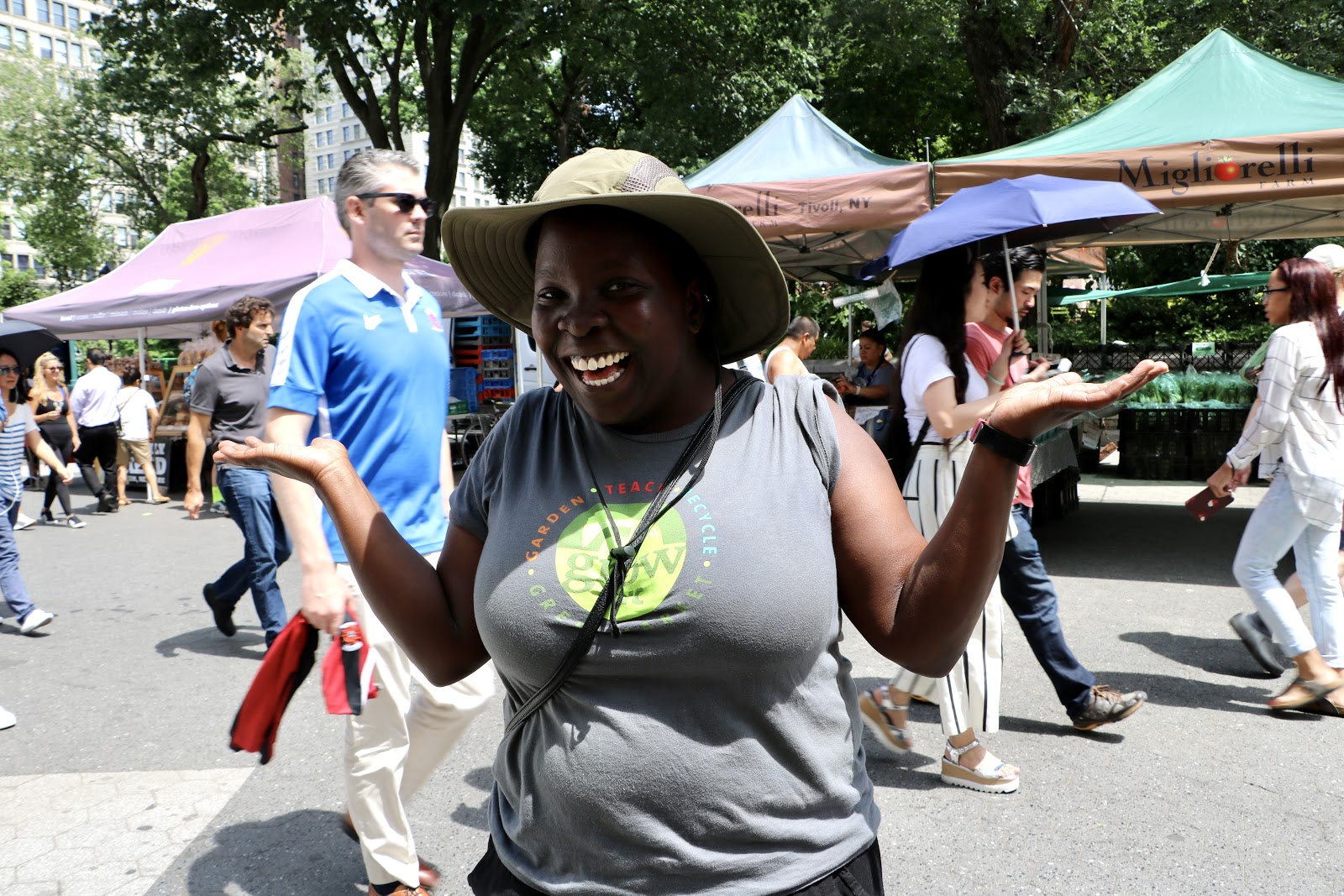
Please introduce yourself and describe what you do at GrowNYC.
Tutu Badaru, she/her are my preferred pronouns. I identify as an African woman who was born and raised in Kampala, Uganda. I moved to New York seven years ago to go to grad school and was only supposed to stay for two years. However, somewhere in those two years, I fell in love with the city and its people, so I decided to stay.
Getting a job at GrowNYC was one of the reasons I decided to stay. I was lucky enough to find a job that combined my professional expertise with my life’s passions. In my role as the Greenmarket Youth Engagement coordinator, I am part of a team that creates a learning environment in our Greenmarkets where students K-12 can engage with locally grown food and its growers. Our fun, interactive Greenmarket School Tours help children gain an understanding of farming in our region and how their food choices impact their bodies, their communities, and their environment.
Do you have certain passions that drew you to your current work?
I have always wanted to work with children. At first, I thought that would be as a pediatrician. However, when my high school Home Ec. teacher introduced me to the field of dietetics, I knew that was exactly what I wanted to do. I was and still am fascinated with the human relationship to food- one that is often underrated but so vital for our survival as a species.
The American clinical nutrition field is made up of mostly white women, a fact that I was ignorant of before I started grad school. My nutrition program was not an exception to the national demographics. Therefore, in many of my classes, the few BIPOC bore the burden of pushing back on repetitive microaggressions and stereotypical misconceptions that our classmates had about communities of color. Cultural (non-white) foods and norms were often villainized and touted as the reasons for poor health indicators in black and brown communities. No one was talking about the systemic structures which intentionally kept BIPOC in areas with little access to fresh and healthy food. This was before the notion of Food Apartheid became more commonplace.
So, I turned to Community and Public health nutrition as a way of opting out of a field that did not see BIPOC through a holistic lens. The system was broken and stacked up against folks who looked like me. I realized that I wanted to be able to work with people and communities outside of the restrictions and limitations of Hospital regulations.
Who are the heroes that you look to in your work?
Dr. Jessica B. Harris for her work on documenting African American food pathways. She was a food writer during times when very few black and female writers were appreciated. I think her work to document the connection of black food in America to its African roots fills a vacuum in American food history.
Yewande Komolafe, a Nigeran professional chef who just joined the elite ranks of the New York Times food writing staff. Yewande has used her platform to champion African food and bring food like Jollof rice to a wide audience. I think and hope that the more folks interact with cultures outside of their own, the less likely they are to be prejudice. Her appointment to such a mainstream food platform makes me feel like there is room for me too, an African girl from Kampala! Can you feel how excited I am for the future of food?
What are the challenges and opportunities particular to Black members of the environmental or food access space?
There are not enough black or brown people with decision-making roles in the food access space, especially in non-profits that work in communities that are predominantly BIPOC. I find it hard to think that any sustainable work can be done without centering the folks who are most affected and giving them a real voice. I can see glimpses of change in some of these spaces, but not enough to enact real change.
What would this work look like in a more equitable society?
Food work is often underappreciated and the people who choose careers in it are often poorly compensated. Many black folks who work in this field do so as a sacrifice and in service to their communities. This sometimes means that people who want to do this work are not able to because they cannot afford to make the economical sacrifice. I think the food and nutrition field would be more diverse if we compensated black farmers, chefs, educators, and nutrition professionals more adequately.
Diante Webb

Please introduce yourself and describe what you do at GrowNYC.
My name is Diante Webb and I am GrowNYC’s Executive Assistant. I work mostly behind the scenes to support our Board of Directors, CEO, Assistant Director, and everyone else on staff! I schedule meetings, take minutes, draft agendas, plan events, and handle all kinds of administrative tasks.
Do you have certain passions that drew you to your current work?
I’ve always cared about the environment and wanted to learn more. I also love supporting and being a resource for people. So, I think that’s how I ended up where I am.
Who are the heroes that you look to in your work?
My heroes are Black activists, organizers, and everyday Black people working to make this City, State, and Country a better place for everyone.
What are the challenges and opportunities particular to Black members of the environmental or food access space?
Environmental justice often excludes discussions of environmental racism, which perseveres and disproportionately affects Black people in the United States. We cannot achieve true environmental justice until the most vulnerable populations are acknowledged, accounted for, and protected.
What would this work look like in a more equitable society?
I think this work would include more perspective from and elevation of members of affected communities and their needs. In a more equitable society, grassroots organizations, communities, elected officials, and many more would work together to address the systemic issues behind food access, climate change, and environmental racism.
Chantel Kemp
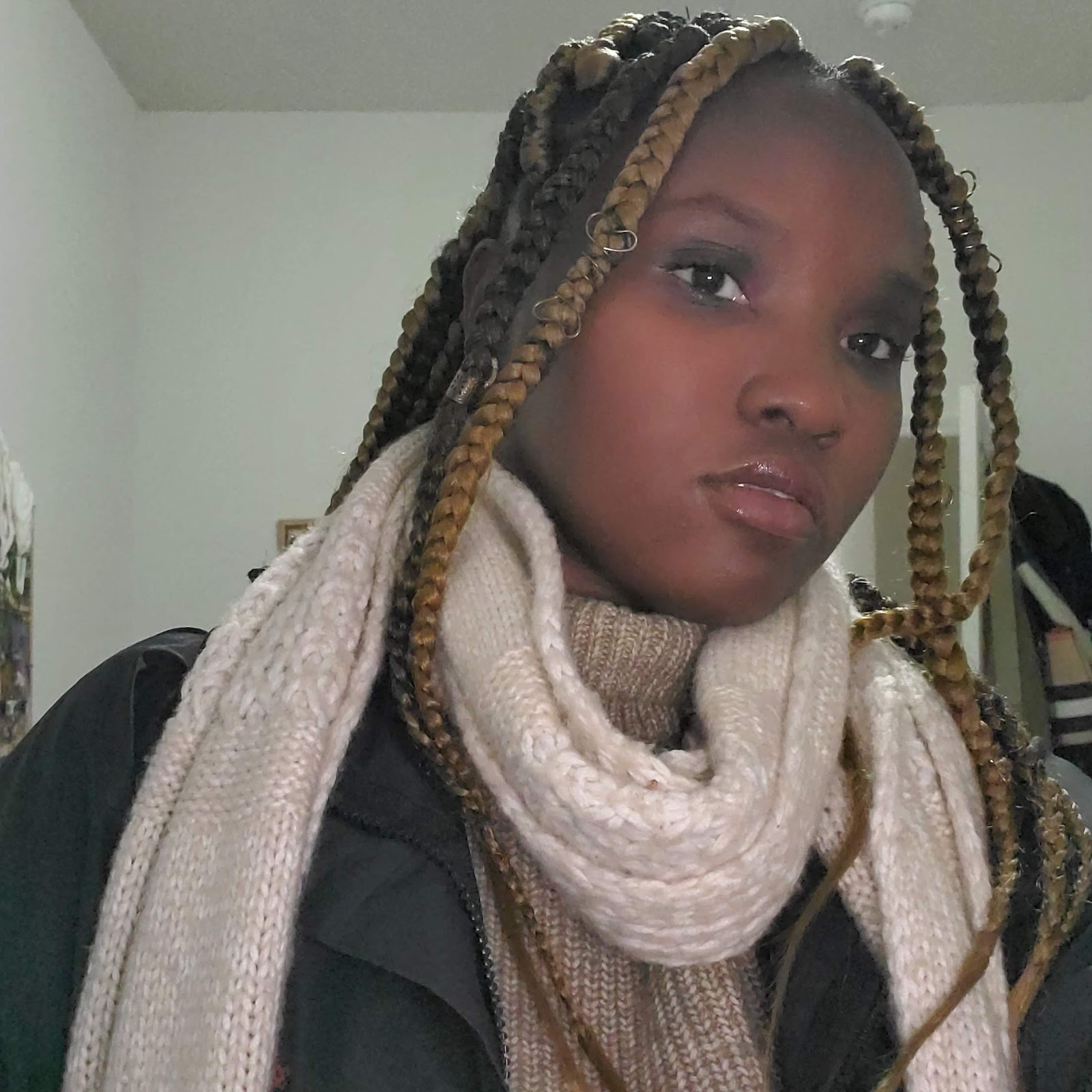
Please introduce yourself and describe what you do at GrowNYC.
Hiya, my name is Chantel Kemp, and I am a Garden Coordinator at GrowNYC. A large part of what I do involves maintaining relationships with community members. The other parts include a weird juggling of corporate structure, earth warrior goddess mode, and navigating NY virtually. The members that I serve are some of the most beautiful souls, and for a long time, NYCHA has been underrepresented and undervalued. The residents of NYCHA have more value than a lot of NY residents see, my work in urban agriculture shines a light on that injustice.
Do you have certain passions that drew you to your current work?
I have a passion for financial freedom and not having to sacrifice my morals to get it. When I first learned about the Urban AG Industry, I was receiving a stipend. $500 doesn’t do much when you’re struggling to pay bills, however, my saving grace was looking at the job potential and mobility. Salary positions that didn’t rely solely on academia, the AG industry valued my lived experience in a way the academic circles did not.
Who are the heroes that you look to in your work?
My heroes are the young folks who choose Urban Ag for Summer Youth work. The young people who make the decision every day to support the earth and BIPOC freedoms. The teachers who center their work around equity and BIPOC voices. Last but certainly not least, my heroes are the beautiful POC women, men, and people who paved the way for me.
What are the challenges and opportunities particular to Black members of the environmental or food access space?
There’s a pain for BIPOC folks in the environmental/green job sector. For the last 100 years or so POC folks have been suffering from some of the most violent forms of environmental terrorism. Mass and egregious pollution in black and brown communities, zero regulations or enforcement for housing standards or carbon emissions. The actual building of an expressway in communities already facing high rates of asthma and a lack of oversight of food corporations in black communities. So, the black and brown people that do the work in this sector are revolutionaries. Fighting not only for the earth’s existence but for the existence of our people on this planet too. #BlackLivesMatter
What would this work look like in a more equitable society?
In a more equitable society, there would be major investment poured into urban communities through the creation of green jobs, training programs, internships, job shadowing opportunities, etc. There would also be space for economic mobility using a cooperative business model, and investment in creating an Innovation sector in NYC. Re-envisioning our NYC schools and replacing policing and regulations that undermine with more investment in social services, counselors, job training, trade skills, and healthier/tastier food options. Then we could foster and solidify relationships with schools and residents to build a better NYC and NY state.
Akhmose Ari-Hotep

Please introduce yourself and describe what you do at GrowNYC.
Greetings, my name is Akhmose Ari-Hotep. I started out at Grow as a Driver and Compost Coordinator then transitioned to the role of teamwork at Fresh Food Box and Greenmarkets. Presently and as of late I have been doing work with BIPOC and the Racial Equity Task Force (RETF).
Do you have certain passions that drew you to your current work?
I am an ‘Earth Steward,’ I am for equity, freedom, and restitution, I am ‘Captain Planet.’
Who are the heroes that you look to in your work?
Hazel M. Johnson, Dr. Robert D. Bullard, Domingo Morales, Ron Finley
What are the challenges and opportunities particular to Black members of the environmental or food access space?
Challenges: The reclamation of education, need for better access to resources, the need for more acknowledgment of our contributions to the field/s, participation in managerial roles, and policymaking.
Opportunities: To innovate, lead, and still succeed in the face of continued adversity.
What would this work look like in a more equitable society?
“40 acres and a mule.” Reparations!





